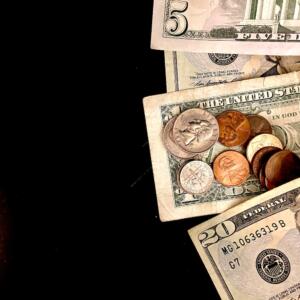
Foreigners Owning a House in Thailand
<< Property Taxes in Thailand >>
When it comes to investing in real estate, one of the key considerations is understanding the property tax system in the country where you plan to purchase a house. In Thailand, property taxes can be complex and may vary depending on the type of property and location. In this article, we will explore the different types of property taxes in Thailand and provide you with valuable insights on how to navigate through them when buying a house.
Understanding the Different Types of Property Taxes
Thailand has several types of property taxes that buyers need to be aware of. The first type is the Land and Building Tax, which is levied annually on land and buildings. This tax is calculated based on the appraised value of the property and can vary depending on the location and type of property. Additionally, there is a Local Development Tax, which is imposed on properties located in certain areas designated for development projects. This tax is usually a one-time payment and is calculated based on the size of the property.
Another important tax to consider is the Transfer Fee, which is applicable when transferring the ownership of a property. This fee is based on the appraised value of the property and is typically shared equally between the buyer and the seller. Additionally, there is a Specific Business Tax that applies to properties that are sold within five years of purchase. This tax is levied at a rate of 3.3% of the sale price or the appraised value, whichever is higher.
Factors to Consider When Buying a House in Thailand
Before purchasing a house in Thailand, it is important to consider various factors that may affect the property taxes you will be required to pay. One of the key factors is the location of the property. Different areas in Thailand may have different tax rates, so it is important to research the tax regulations in the specific location where you plan to buy.
The type of property you are buying is another important consideration. The tax rates and rules may vary depending on whether you are purchasing a house, condominium, or land. It is essential to understand the specific tax implications for the type of property you are interested in.
It is recommended to get a professional appraisal to ensure an accurate valuation of the property. This will help you plan your budget and avoid any surprises when it comes to property taxes.
Navigating Property Taxes When Buying a House
Navigating through the property tax system can be challenging, especially if you are unfamiliar with the regulations in Thailand. To ensure a smooth process, it is advisable to seek professional advice from a qualified tax consultant or a real estate attorney who specializes in property tax planning.
These professionals can guide you through the entire process, from understanding the different taxes applicable to your property to assisting with the necessary paperwork and calculations. They can also help you identify any potential tax deductions or exemptions that you may be eligible for, ultimately helping you maximize your investment.
Tips for Minimizing Property Taxes in Thailand
While property taxes are unavoidable, there are strategies you can employ to minimize your tax burden when buying a house in Thailand. One of the effective ways is to structure your property ownership in a tax-efficient manner. By consulting with a professional tax advisor, you can explore options such as setting up a company to hold the property or utilizing a trust structure.
Another tip is to consider timing your property purchase strategically. As mentioned earlier, the Specific Business Tax applies to properties sold within five years of purchase. By holding onto the property for more than five years, you can avoid this tax altogether.
Additionally, it is essential to stay updated with any changes in the tax laws and regulations. Tax policies can change over time, and keeping yourself informed will help you make informed decisions and plan ahead.
Investing in Condos in Thailand and the Associated Taxes
Investing in condominiums is a popular choice for many buyers in Thailand. Condos offer several advantages, such as shared amenities and convenient locations. However, it is important to be aware of the taxes associated with condo ownership.
When buying a condo, you will be subject to the same property taxes mentioned earlier, such as the Land and Building Tax, Transfer Fee, and Specific Business Tax. In addition to these taxes, condo owners may also be required to pay a Common Area Fee, which covers the maintenance and management of the shared areas and facilities.
It is crucial to factor in these expenses when calculating the overall cost of owning a condo in Thailand. Consulting with a tax professional will help you understand the specific tax implications and ensure that you are prepared for any financial obligations.
Other Considerations When Investing in Thailand
In addition to property taxes, there are other considerations to keep in mind when investing in real estate in Thailand. One important aspect is the foreign ownership restrictions. It is important to understand the regulations and restrictions that apply to your specific situation.
Another consideration is the potential rental income from your property. Rental income is subject to income tax in Thailand, and it is important to comply with the tax regulations and reporting requirements.
Seeking Professional Advice for Property Tax Planning
Given the complexity of property taxes in Thailand, seeking professional advice is invaluable. A qualified tax consultant or real estate attorney can provide tailored guidance based on your specific circumstances and help you navigate through the tax system.
They can assist with tax planning, ensure compliance with the regulations, and help you optimize your investment. With their expertise, you can have peace of mind knowing that you are making informed decisions and maximizing your investment potential.
Resources for Further Information on Property Taxes in Thailand
If you are looking for more information on property taxes in Thailand, there are several resources available to you. The Department of Lands is a government agency that provides information on land and property-related matters, including tax regulations. Their website is a valuable source of information for property buyers.
Additionally, professional organizations such as the Thai Real Estate Association and the Association of Property Valuers in Thailand can provide resources and guidance on property taxes. These organizations have members who are experts in the field and can provide valuable insights and assistance.
Conclusion
When buying a house in Thailand, understanding the property tax system is crucial for maximizing your investment. By familiarizing yourself with the different types of property taxes, considering various factors, and seeking professional advice, you can navigate through the tax system with ease.
Investing in real estate is a significant decision, and considering the tax implications is an essential part of the process. By taking the time to understand property taxes in Thailand, you can confidently make informed decisions and maximize the return on your investment.






